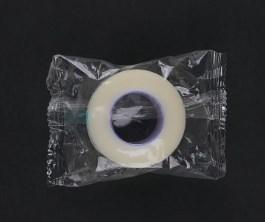In the medical field, the performance of surgical tapes is paramount, and one of the key attributes that Surgical Tape Manufacturer must ensure is the waterproof capability of their products. Surgical tapes are used in a variety of applications where they must maintain their adhesive properties even when exposed to moisture, such as during surgical procedures, wound care, and the management of various medical conditions. The waterproof performance of surgical tapes is crucial for preventing infections, securing medical devices, and providing a barrier against external contaminants.
Surgical Tape Manufacturers invest significant resources into research and development to create tapes that can withstand the challenges posed by water exposure. The waterproof performance of surgical tapes is achieved through a combination of material selection, adhesive technology, and manufacturing processes that are specifically designed to repel water and maintain adhesion under wet conditions.
The materials used by Surgical Tape Manufacturers are carefully chosen for their inherent waterproof properties. Polyurethane and polyethylene are common materials used in the production of surgical tapes due to their hydrophobic nature. These materials are not only waterproof but also provide a balance of flexibility and strength, which is essential for tapes that need to conform to the contours of the body without compromising their waterproof barrier.
The adhesive used in surgical tapes is another critical factor in their waterproof performance. Surgical Tape Manufacturers develop adhesives that not only provide secure adhesion but also maintain their粘性 when wet. This is achieved through the use of advanced polymer technology that creates a bond that resists water displacement. The adhesive must also be gentle on the skin to prevent irritation, especially when it needs to be removed after prolonged use.
The manufacturing process employed by Surgical Tape Manufacturers is also crucial in ensuring the waterproof performance of their tapes. The tapes are produced in controlled environments to minimize the risk of contamination and to ensure consistency in quality. The application of adhesive is carefully controlled to ensure an even distribution, which is vital for maintaining a uniform waterproof barrier across the entire surface of the tape.
Quality control is a critical aspect of the production process for Surgical Tape Manufacturers. Rigorous testing is conducted to ensure that each batch of surgical tapes meets the required waterproof standards. Tests such as the water immersion test, where the tape is submerged in water and then evaluated for adhesion and integrity, are common. These tests help to identify any weaknesses in the waterproof performance of the tapes and allow manufacturers to make necessary adjustments to their production processes.
Regulatory compliance is also a significant factor for Surgical Tape Manufacturers. They must adhere to strict industry standards and regulations that govern the production and testing of medical devices, including surgical tapes. These regulations ensure that the tapes are not only waterproof but also safe for use on patients.
In conclusion, the waterproof performance of surgical tapes is a complex aspect of the product that Surgical Tape Manufacturers must address through careful material selection, advanced adhesive technology, controlled manufacturing processes, and rigorous quality control. By doing so, they ensure that their tapes can provide a reliable barrier against water and other contaminants, maintaining their effectiveness in a variety of medical applications. This commitment to quality and performance is what sets apart reputable Surgical Tape Manufacturers in the healthcare industry.

